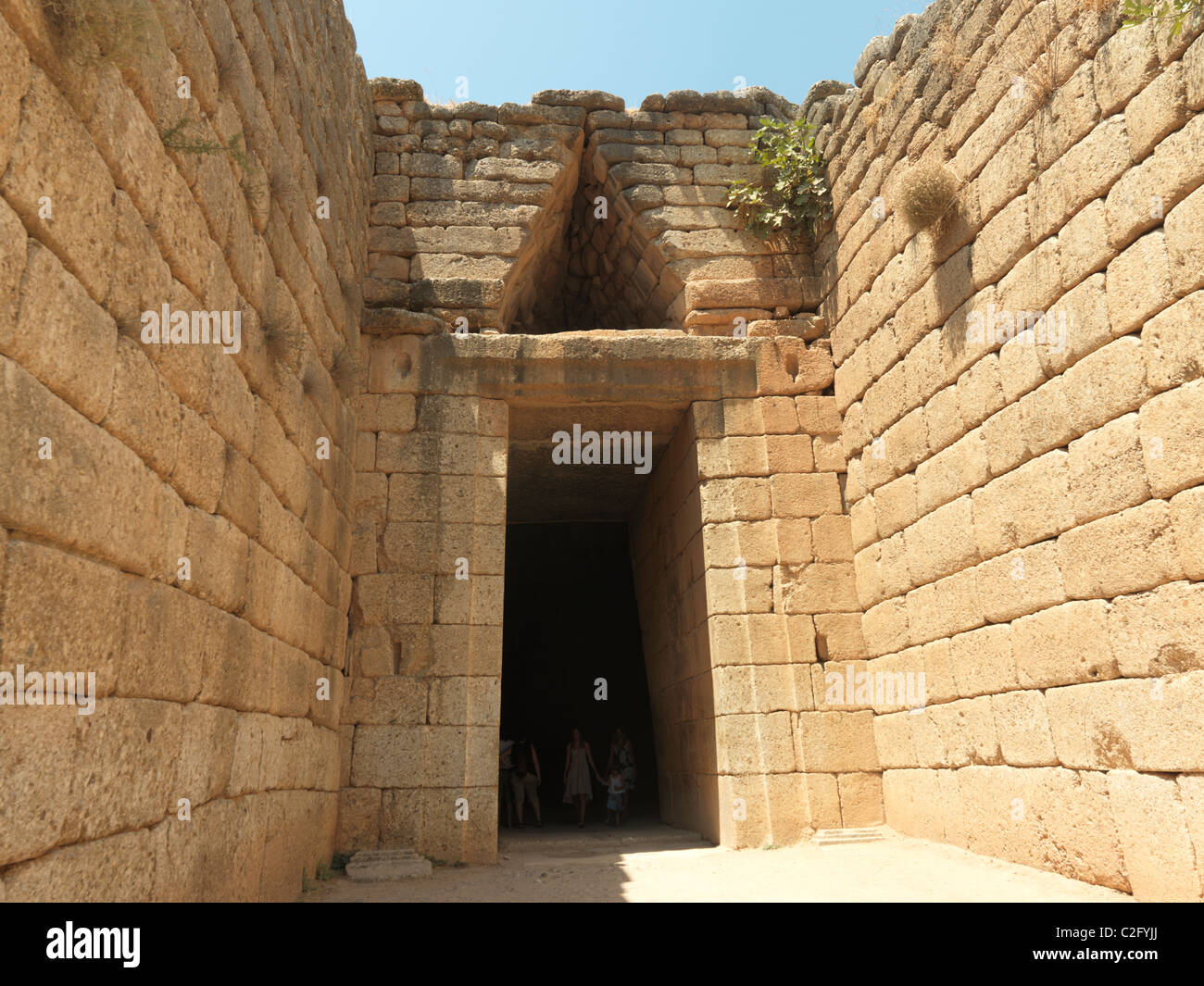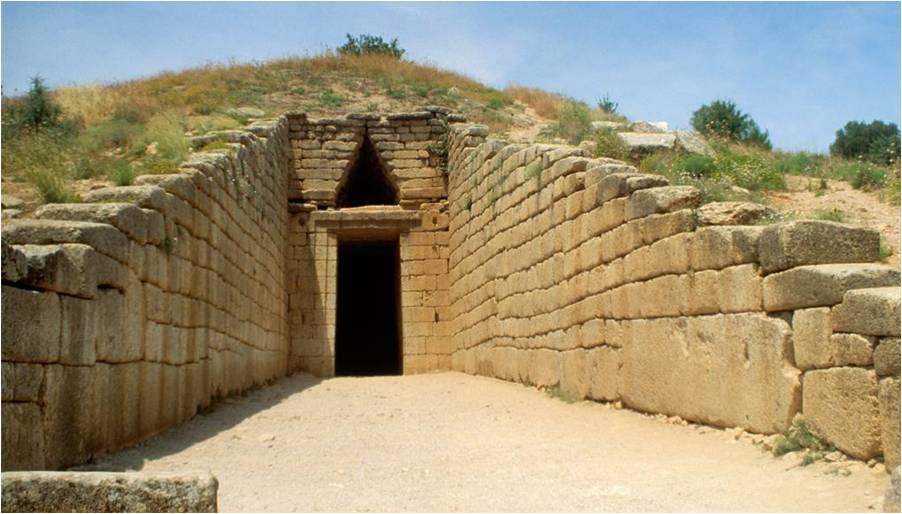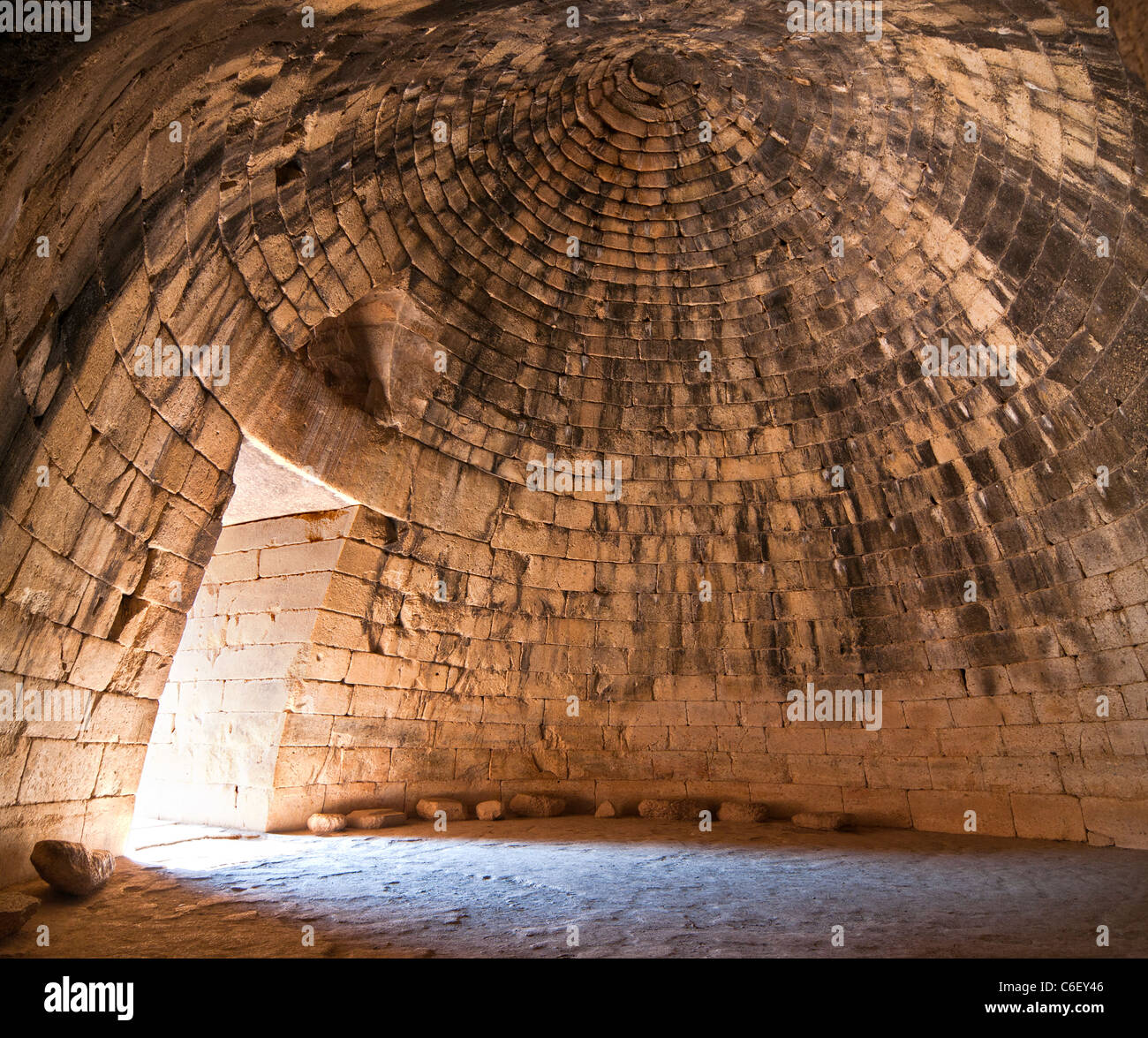
Tholos Tomb interior, Tiryns Stock Image C036/9272 Science Photo
The top destination for Prehistoric and Ancient Sites worldwide. Nestors Palace Tholos Tomb: [News and Comments:3] A beehive tomb, also known as a tholos tomb is a burial structure characterized by its false dome created by the superposition of successively smaller rings of mud bricks or stones. Excavation of this

21 Best Things to Do in Kefalonia (Greece) TOURIST MAKER
The Chronology of Tholoi There are three groups of tholos tombs at Mycenae, all corresponding with the end of the use of shaft graves: Group I ( 1510-1460BC). This group includes the tombs known as the Cyclopean tomb, the Epano Phournos tomb and the Tomb of Aegisthus. Group II: (1460-1400BC).

Mycenae, the "Treasury of Atreus" tholos tomb Andrew Barclay Flickr
Tombs from the Mycenaen Period (c. 1700-1100 BCE) are known as tholos, or beehive, tombs which are thought to have been derived from early Minoan architectural advances on Crete. One of the most famous of these tholos tombs is the Treasury of Atreus (also known as the Tomb of Agamemnon, pictured above) which was built c. 1250 BCE. As in other.

Micene Peloponneso Grecia Tomba a tholos Tesoro di Atreo Foto stock Alamy
This tholos, much like the others, is characterized by a high-pitched false dome that resembles a beehive. The ancient tomb of Tiryns sits at the end of a 10-foot-wide, 42-foot-long sunken walkway.

Tomba a tholos di Clitennestra, Micene, Grecia Foto stock Alamy
Come abbiamo detto, la thólos è chiusa da una pseudo-cupola, un sistema molto diffuso nelle civiltà antiche e non solo.

'Treasury of Atreus' tholos tomb, c1300 BCE Mycenae, The Argolid
In south-central Crete burial in the communal stone-built tholos tombs was practiced from the early Prepalatial to the end of the Protopalatial period, namely for a period of about 14 centuries (ca. 3100-1700 BC, [1] Early Minoan I-Middle Minoan II ceramic phases [2] ). [3]

Lavrio tholos tombs above Photo from Thorikos in Athens
A beehive tomb, also known as a tholos tomb (plural tholoi; from Greek θολωτός τάφος, θολωτοί τάφοι, "domed tombs"), is a burial structure characterized by its false dome created by corbelling, the superposition of successively smaller rings of mudbricks or, more often, stones.

The Treasury of Atreus is the largest and most impressive of the nine
The systematic archaeological re-investigation of the area within and around Tholos Tomb B, the cemetery's most important building, started in 2013 and was completed in 2015 with finds that were beyond all expectation, including a thick layer of cremated human bones in a commingled state and hundreds of precious artefacts. This unprecedented.

Tholos Tomb Interior Photograph by David Parker/science Photo Library
Une tholos mycénienne est une immense tombe circulaire, appareillée par assises horizontales, et couverte d'une coupole en pierre traitée en encorbellement (tel le « trésor d'Atrée » à Mycènes).. le terme de tholos désignera tout édifice de type comparable, même de dimension très réduite, comme le monument choragique de.

Tholos tomb (socalled “Tomb of Agamemnon” or “Treasury of Atreus
Tholos Tomb. The tholos tomb is a round, beehive shaped structure famously built by the late Bronze Age Mycenean peoples. These were royal examples of the commonly employed chamber tomb. A rounded cut was made into a hillside, within which huge ashlar masonry would be employed to create a conical structure, with a wide entryway leading to it.

Micene. Le incredibili tombe dei guerrieri
Treasury of Atreus, a beehive, or tholos, tomb built about 1350 to 1250 bc at Mycenae, Greece.This surviving architectural structure of the Mycenaean civilization is a pointed dome built up of overhanging (i.e., corbeled) blocks of conglomerate masonry cut and polished to give the impression of a true vault. The diameter of the tomb is almost 50 feet (15 metres); its height is slightly less.

Ingresso della Tomba a tholos di Agamennone o del Tesoro di Atreo
The Treasury of Atreus or Tomb of Agamemnon is a large tholos or beehive tomb constructed between 1300 and 1250 BCE in Mycenae, Greece.. It is the largest and most elaborate tholos tomb known to have been constructed in the Aegean Bronze Age, and one of the last to have been built in the Argolid.The main tomb consisted of a circular burial chamber, or thalamos, topped with a corbelled dome.

Tesoro di Atreo conosciuta anche come la tomba di Agamennone, a tholos
L'expression tombe à tholos est employée pour désigner une tombe à chambre mycénienne à coupole ou, plus couramment pour désigner un édifice rond (généralement un temple) d'époque archaïque, classique ou hellénistique. Les préhistoriens ont parfois repris le mot pour désigner des édifices circulaires plus anciens. Origines et formes

Mycenaean Tholos Tombs and Early Mycenaean Settlements Brewminate A
Storia L'ingresso della tomba a tholos. Citata da Pausania, era ancora visibile nel 1879 quando l'archeologo tedesco Heinrich Schliemann scoprì le altre tombe reali sotto l'agorà nella Rocca.. Fu edificata intorno alla metà del XV secolo a.C. (circa due secoli prima dell'epoca presunta della Guerra di Troia) ed ospitò i resti forse del sovrano che portò a termine la ricostruzione della.

Tumbas tholos fotografías e imágenes de alta resolución Alamy
Tombe a tholos vennero realizzate in Egitto, in Sicilia e soprattutto in Grecia per opera della civiltà micenea. Le tombe a thοlos sono monumenti funerari risalenti come tipologia alla tarda età del bronzo. Sono costituiti da un vano circolare, spesso sottostante ad un tumulo di terra e coperto con cerchi concentrici di blocchi lapidei a.

Tesoro di Atreo o la tomba di Agamennone, un "tholos" tomba la
La necropoli è composta da tre tombe a tholos, la prima delle quali (la Tholos A), la più grande, fu occupata senza soluzione di continuità dagli inizi del II millennio a.C. (Medio Minoico IB).